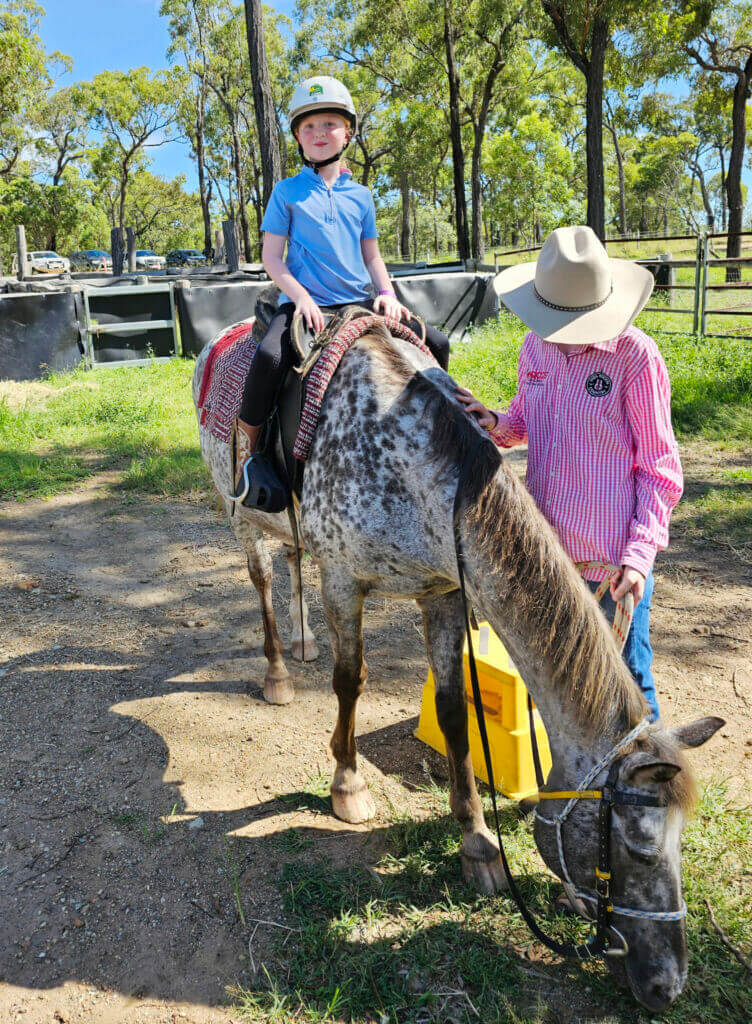Central Queensland mum urges families to open themselves to learning journey
Being diagnosed with multiple sclerosis in her late 20s came as a shock to Central Queensland local Shae, who has two daughters, one who also lives with a disability.
The 34-year-old said she suffered with a range of symptoms for years but just dealt with them before getting an official diagnosis in 2019.
“I think what really triggered a major flare was my dad passing away in 2018 and all the stress of that,” Shae, of Gracemere, said.
“After his funeral I went back to Rockhampton to see my family’s GP who went back through my medical records thoroughly and found many things, including a history of migraines.”
While contending with her own health issues, Shae has also supported the health needs of her daughter Phoebe, who was born with a serious and complicated medical condition.

Phoebe, 8, needed 9 surgeries in the first year of her life, and for years after underwent a series of invasive procedures and interventions.
“Her speech was always really good because for the first few years of her life Phoebe was always around adults and doctors,” Shae said.
“But her social skills and emotional regulation was where she struggled the most, with meltdown after meltdown after meltdown.”
In 2021, Phoebe was diagnosed with autism, anxiety and ADHD, and after she transitioned from her Early Childhood Early Approach provider, Carers Queensland supported her to access services with the National Disability Insurance Scheme (NDIS).
Shae said the transition was made easier because she attended an event co-hosted by Carers Queensland where families could learn more about community connections and the NDIS.
“From there I attended some online workshops about how to better use Phoebe’s NDIS plan and I built connections with Carers Queensland staff,” Shae said.
“I was vulnerable and trusted staff with personal details, which was hard given that I work in this sector.”
Shae said all the networking, information gathering and sharing led to her being supported to gain access to the NDIS in 2023.

“Carers Queensland definitely assisted me with my NDIS plan and they explained and gave practical help during each step of the process,” Shae said.
“They sent me emails so I had them as a reference to look back on, and staff followed up with phone calls and genuinely cared about Phoebe and I’s journey.”
Shae said thanks to the NDIS funding she has a support worker to help with domestic duties. She also visits a physiotherapist regularly and has had a functional capacity assessment completed by an occupational therapist.
Phoebe attends psychology appointments and is well supported through the ‘It’s All About Me’ young carers program with Carers Queensland.
“Phoebe is coming along in leaps and bounds because she is getting the help she needs, mainly to regulate her emotions and improve her social skills,” Shae said.
“Friendship is really important to me and I’m still friends with a number of people I went to primary school with. I want Phoebe to experience the true value of friendships and that’s something we’re working on.
“The supports I get allow me to continue working, providing financially for my children and spending quality time with them.

“My job is a really important part of who I am, not only does it help with my mental health but through my work I can continue to give back to my community.”
Shae says as her MS progresses, her supports will enable her to maintain as much independence as possible so she can continue to engage and participate in community, family and social settings.
“My cognitive ability has declined a lot in the past 12 months, my memory is pretty bad and I stumble on words and have slurred speech when I’m tired,” she said.
“There are days I’m so fatigued and my body is so weak I can’t lift my arms, and I just want to sleep.
“I don’t know what my capacity will be like as I age, but I’m now making an effort to prioritise self-care, even if it’s just closing my eyes for 30 minutes while Phoebe has her appointment.
“As for Phoebe, we’re on a path to enhanced social interactions, an increase in emotional intelligence, improved receptive language skills and increased independence with self-care tasks.”
A few big milestones achieved by Phoebe recently include reading alone in her bedroom and voluntarily visiting the dentist, a place she’s previously feared.

“We've worked hard for her to have a smile in the dentist chair, in the past we’ve had big meltdowns and couldn't even get into the room. I’m so proud of Phoebe for doing independent tasks and achieving her goals,” Shae said.
Shae urges families with disability to use the free supports and services offered by Carers Queensland, as well as other organisations in the community.
“If there’s a workshop, go to it. If you have a question, ask it. You don’t know what you don’t know,” Shae said.
“It’s not until you make yourself available to the learning journey that you will start reaping the rewards of services that are out there.
“It’s particularly important that parents of children with disability don’t just rely on funded supports.
“There are many free support groups and programs available in our community, it’s just a matter of finding them.
“Also, remember to look after yourself, whether you have a disability yourself or are a carer – life is hard.
“Be kind to yourself and take care of you so you are the best version of yourself.”

Carers Queensland can support you to find out more about the NDIS, to apply for funding and to help you get started with the NDIS.
If you have a disability but are not eligible for the NDIS, Carers Queensland can help you identify and link to options for support in your community.
You can also contact Carers Queensland on 1300 999 636, cq.enquiries@ndis.gov.au, or sign up to our LAC Connect app here.

